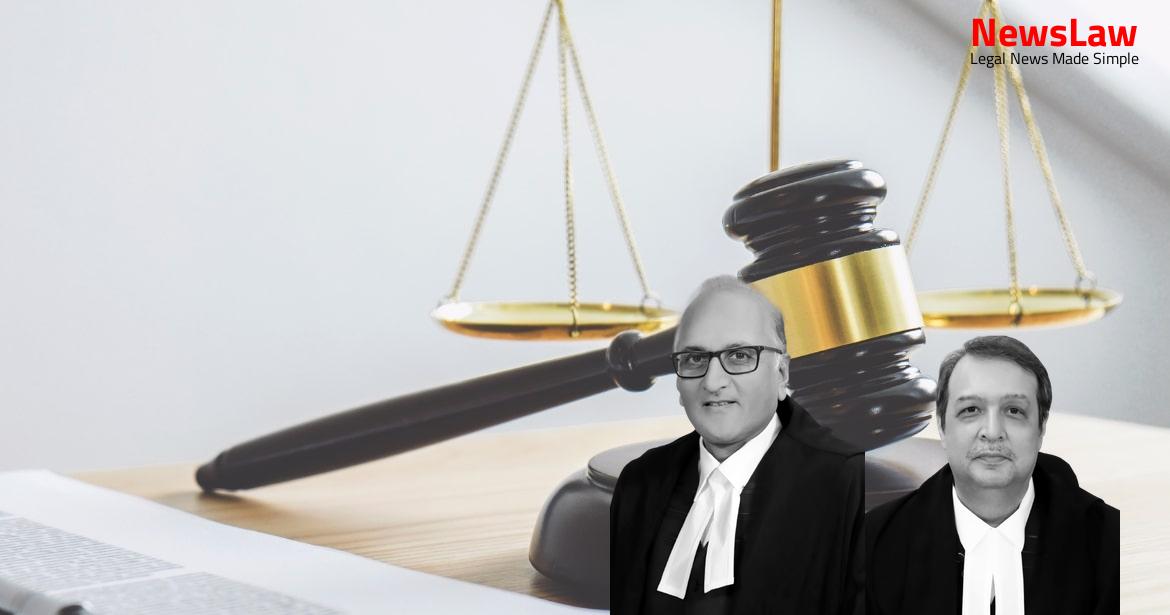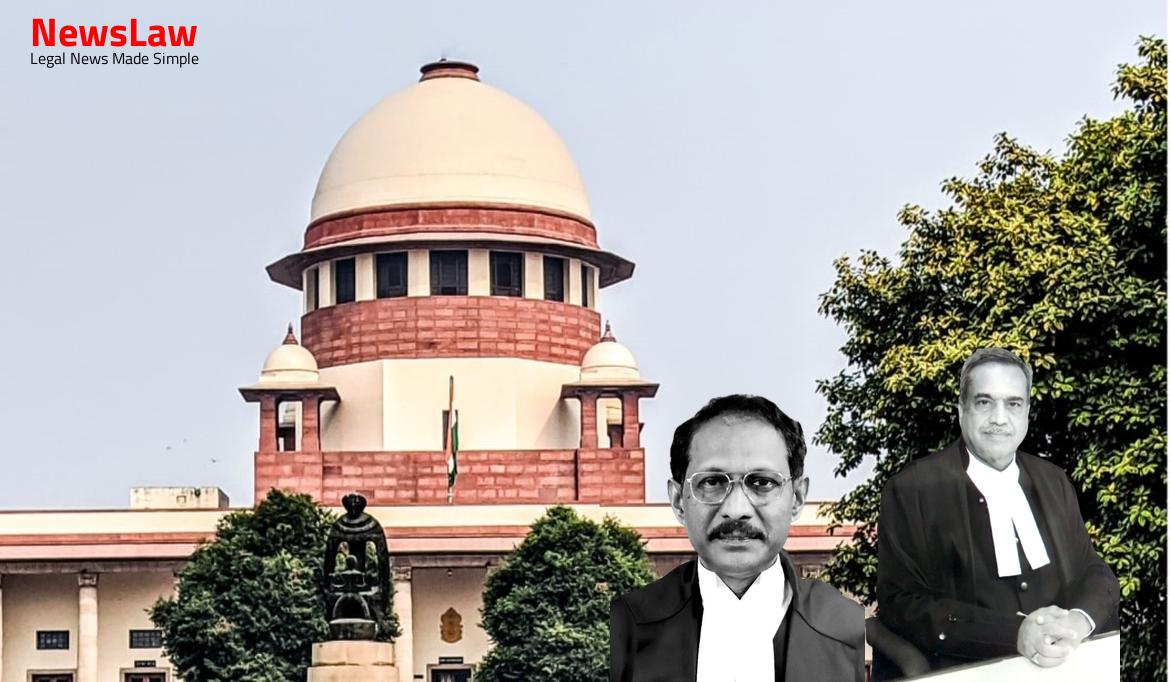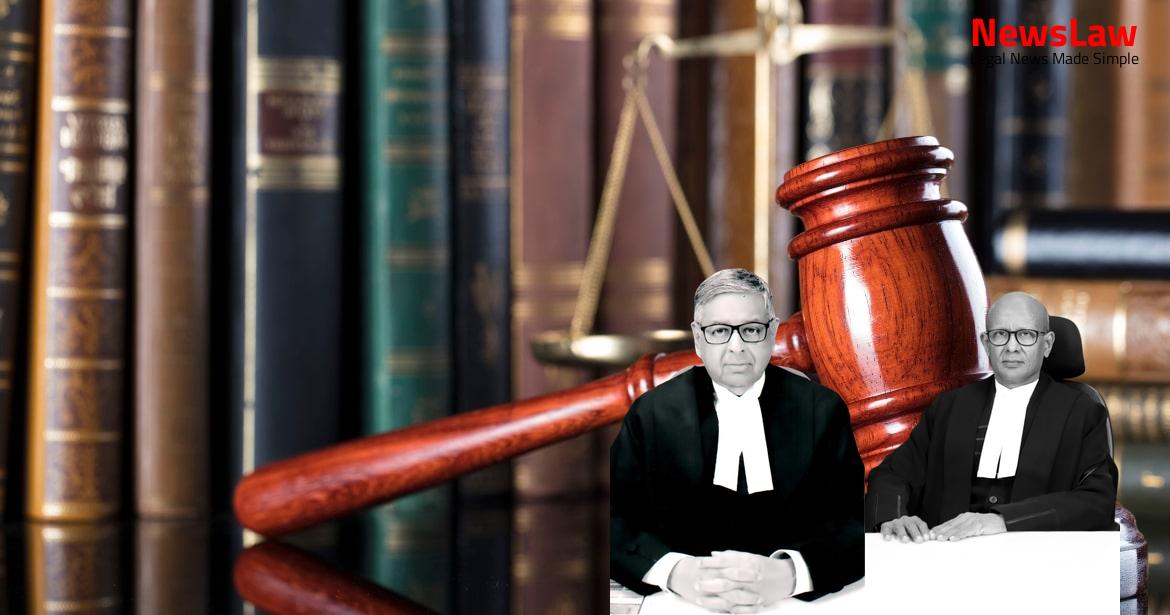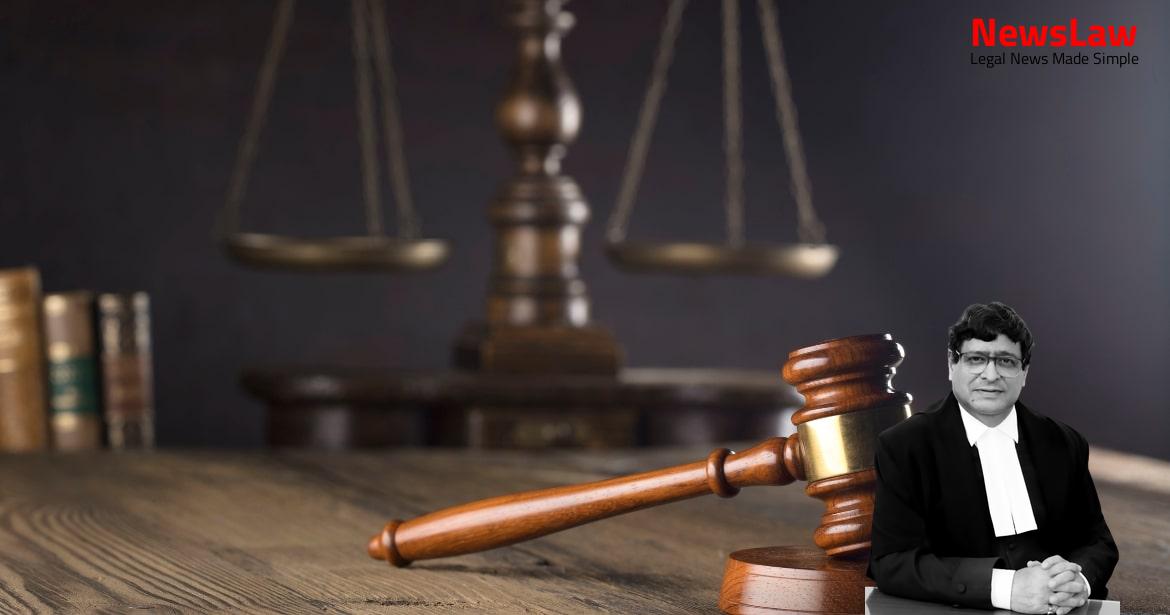Delve into the court’s in-depth examination of an employee’s termination for suppression of information during the hiring process in a recent case. The focus shifts towards the employer’s perspective on trustworthiness and credibility, emphasizing the impact of false declarations on the termination decision. Highlighting the importance of transparency and honesty in employment procedures. #LegalAnalysis #SuppressionOfFacts
Facts
- The appeal arises from a writ application filed by the appellant challenging his dismissal from service as a Constable (General Duty) with the CRPF.
- The appellant’s character and antecedents verification form was sent to the Collector, District Sant Kabir Nagar, Uttar Pradesh, which ultimately led to his termination.
- The appellant had concealed information on Form-25, leading to his dismissal under Rule 5(1) of the Central Civil Services (Temporary Service) Rules, 1965.
- The appellant had applied for the post of SI in CRPF in August 2011.
- The appellant challenged his dismissal through multiple writ petitions, all of which were rejected by the High Court.
- The High Court found that the appellant had a criminal case registered against him in 2008 and had answered negatively regarding pending cases during recruitment.
- The appellant’s bail in the criminal case was for cognizable offenses.
- The appellant continued to challenge his removal through writ petitions, all of which were dismissed.
- The High Court rejected the Writ Petition on 04.02.2020.
- The Judicial Magistrate Court committed the case to the Court of Sessions on 02.08.2011.
- The Sessions Court framed charges on 23.12.2011 for various offences under IPC.
- All accused were acquitted as prosecution witnesses turned hostile.
- The appellant was on bail at the time of filling the verification form on 20.08.2011.
- The respondent benefited from the Probation of Offenders Act, 1958.
- The appellant was acquitted from all charges on 28.07.2015 by the Additional Sessions Judge in Crime Case No 261/2002.
- The High Court rejected the writ application mentioning the acquittal due to a settlement between parties.
- The matter was remitted to the Revisionary Authority for fresh consideration, ultimately leading to the appellant’s termination of services on 05.01.2018.
- Another criminal case against the respondent led to a conviction on 05.08.2013.
- The High Court’s order to reinstate the respondent was set aside by this Court, discussing the consequences of technical acquittal.
- The respondent was appointed as a Technical Helper on probation from 05.2015 for two years.
Issue
- The issue/question may be considered from another angle, from the employer’s point of view.
- The question revolves around trust and the credibility/trustworthiness of an employee who, during the initial stages of employment, makes false declarations or suppresses material facts related to past criminal cases.
- The disclosure of correct facts during the hiring process could have influenced the employer’s decision on the appointment.
- The focus is not on the severity of the past dispute or the employee’s subsequent acquittal, but rather on the act of dishonesty during the application process.
Arguments
- The learned counsel for the Petitioner argued that the criminal prosecution against him and others stemmed from a family dispute.
- The Petitioner’s service record was commendable and he had been rewarded for his service.
- Policy guidelines for considering candidates for appointment in CAPFs were cited, highlighting instances where candidates would not be considered for recruitment.
- A specific proviso in the guidelines was mentioned, stating that candidates would not be debarred if only an FIR had been registered and charges were not yet framed, which the Petitioner argued applied to his case.
- The Court did not accept this submission, indicating that the situation could not be deemed as innocent.
- The appeal was vehemently opposed by Ms. Madhavi Divan, the learned ASG representing the respondent.
- She argued that the High Court did not commit any error, let alone an error of law, in issuing the impugned order.
- Ms. Divan reiterated her previous submissions made during the opposition of a related appeal.
- She emphasized that there was no merit in the current appeal and requested for its dismissal.
- Ms. Divan stated that the criminal prosecution in question did not involve any moral turpitude.
Also Read: Supreme Court Judgment:
Supreme Court Upholds Benefit of Input Tax Credit in Uttar Pradesh Value Added Tax Act 2008
Analysis
- The Court upheld the order of the High Court by granting the relief and held that the decision of the Committee would be final unless mala fide.
- Employee on probation can be discharged from service or refused employment based on unsatisfactory antecedents, character, suppression of material information, or making false statements.
- The purpose of requiring information regarding prosecution/conviction in the verification form is to assess character and antecedents of the employee.
- Suppression of material information and false statements in the verification form have a bearing on the character, conduct, and antecedents of the employee.
- Gravity of the criminal offense or ultimate acquittal is not relevant when considering a probationer who suppresses a material fact.
- Special leave may be granted by the court in exceptional circumstances showing substantial injustice and sufficient gravity to review a decision.
- Employers have the right to consider nature of acquittal, offense, and character of the candidate before appointment.
- Suppression of material facts in the verification form may lead to termination or refusal of employment, depending on the discretion of the employer.
- The discretion given to the Selection Committee should not be questioned if not mala fide or based on extraneous considerations.
- Screening Committee decisions are crucial for entry into the police force, considering moral turpitude, honorable acquittal, nature of offense, and credibility of the candidate.
- Suppression or false information regarding criminal proceedings may impact suitability for the post, with special considerations for uniformed services.
- The high standard of integrity and honesty is expected for individuals in uniformed service, deliberate false statements may lead to serious consequences.
- Information disclosure in the verification form is essential for assessing the suitability of a candidate for a post in the police force.
- An employee on probation can be discharged from service or may be refused employment if found unfit for the post.
- Suppression of material information or giving false information can lead to termination from service.
- The term ‘moral turpitude’ is used to describe conduct that is inherently base, vile, or depraved.
- Acquittal in a criminal case does not automatically guarantee appointment in a government service, especially in cases of serious allegations.
- Employers have the right to consider antecedents and suitability of candidates even if acquitted in criminal cases.
- Verification of character and antecedents is crucial for assessing suitability for public service.
- Employers have discretionary power to terminate or refuse employment based on material facts suppression.
- Different standards apply to different services while considering termination due to suppression of material facts.
- The level of integrity expected from those in uniformed services is higher, and deceit cannot be tolerated in such services.
- Employers can consider special circumstances but have the discretion to terminate based on false information suppression.
- Article 136 of the Constitution allows the Supreme Court to grant special leave in its discretion against judgments, decrees, determinations, sentences, or orders passed by any court or tribunal in India, except those related to the Armed Forces.
- The jurisdiction under Article 136 can be divided into two stages: the first stage involves the decision on granting special leave to file an appeal, and the second stage begins if the leave to appeal is granted, converting the petition into an appeal.
- The Court, while considering a special leave petition, determines whether to grant leave or not, which is an exercise of discretionary jurisdiction and not appellate jurisdiction.
- In cases where truthful information regarding a trivial criminal case is disclosed in a character verification form, the employer may choose to appoint the candidate, subject to the outcome of the case.
- Suppression of material information or making false statements in verification forms, especially regarding arrest, prosecution, or convictions, significantly impacts the character, conduct, and background of the employee.
- The procedure of inquiry by the relevant authority should be fair and reasonable, ensuring justice and transparency in decision-making.
- Concerning complaints with verifiable allegations, the administrative Ministry/Department can take action with approval from the designated competent authority as per their jurisdiction.
- Deliberate attempt by appellant Satish Chandra Yadav to withhold relevant information led to termination during probation period
- Appellant Pushpendra Kumar Yadav had four years of service before termination
- Omission of relevant information was key factor in termination of both appellants
Decision
- Appeal arising out of the Special Leave Petition (C) No 20860 of 2019 filed by Satish Chandra Yadav fails and is dismissed.
- All disputes between the parties have been mutually settled.
- Both appeals are dismissed with no order as to costs.
- Pending application, if any, stands disposed of.
Case Title: SATISH CHANDRA YADAV Vs. UNION OF INDIA (2022 INSC 1024)
Case Number: C.A. No.-006955-006955 / 2022



